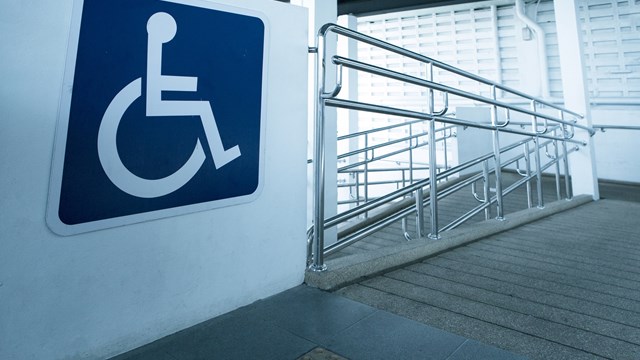Q I live in a small (no pets) condominium in New Jersey. Recently one of the
owners acquired an emotional support dog. Unfortunately, I live directly beneath the unit, and I hear barking and jumping
almost constantly. The managing agent says they are entitled to have the dog
according to the Americans with Disabilities Act (ADA) and the federal
Department of Housing and Urban Development’s Fair Housing Act regulations. I am recently disabled myself and spend much of
my time at home. Don't I have rights, too, other than getting a dog myself? Two
wrongs don't make a right. Now I understand the law is practically forcing this
nuisance upon us. Is that really right? HUD says contact ADA. ADA says contact
HUD. I am not getting any answers. Have you run into this situation before? I
can't be the first with this. Please advise.
—Disgruntled in Denville
A “The law does permit residents in a "no pets" condominium to maintain a dog under
certain circumstances,” according to Mary W. Barrett, Esq., a shareholder attorney with the law firm of
Stark & Stark in Lawrenceville. “If a disabled person requires a dog in order to be afforded an equal opportunity
to use and enjoy the unit, the condominium association must make a reasonable
accommodation and modify its rules. Unless it is readily apparent, the resident
making the request may need to provide documentation of the disability. (A
disability is defined as a mental or physical impairment that substantially
limits one or more major life activities.) There must also be a reasonable relationship between the disability and the
accommodation requested. Assuming these criteria are satisfied, the condominium association must grant
the request unless it will impose an undue financial or administrative burden
on the association or it fundamentally alters the nature of an association
policy, practice or service.
“In this case, the letter writer appears to have two concerns. The first is the
violation of the "no pets" rule. As long as the resident requesting the dog met the criteria, the condominium
likely had no choice but to grant the request. The second concern is the dog's
behavior, specifically, noise from the dog's barking and jumping and this may
be an issue that can be addressed by the condominium association. Disabled
individuals with assistance animals of any kind are still responsible for the
conduct of these animals. For example, if a service dog caused damage to the
elevator, the disabled individual would not be exempt from responsibility. The
same is true when a service dog barks incessantly or causes other unreasonable
noise disturbances that adversely affect other residents. The letter writer may
want to approach her neighbor, express her noise concern, and ask that it be
addressed. If that is not successful, she may want to document the noise and
approach the condominium association again to ask for its assistance. The
condominium association should evaluate the issue and, if it determines there
is cause to do so, address the issue; in doing so it may want to seek advice
from legal counsel to ensure it avoids any unintentional discrimination. In any
event, it is important that concerns regarding the legal presence of the dog
are not confused with concerns about the improper conduct of the dog.”







Leave a Comment